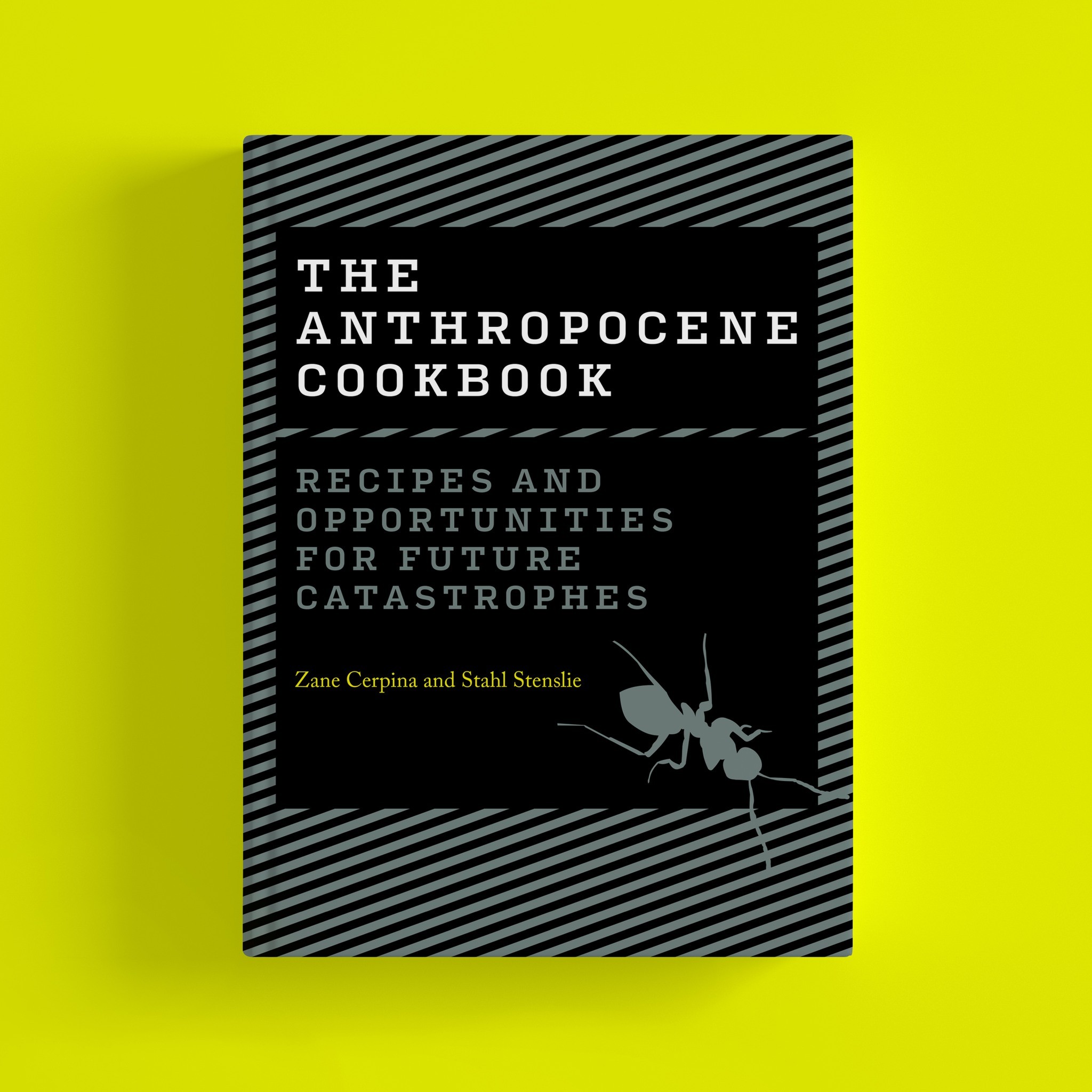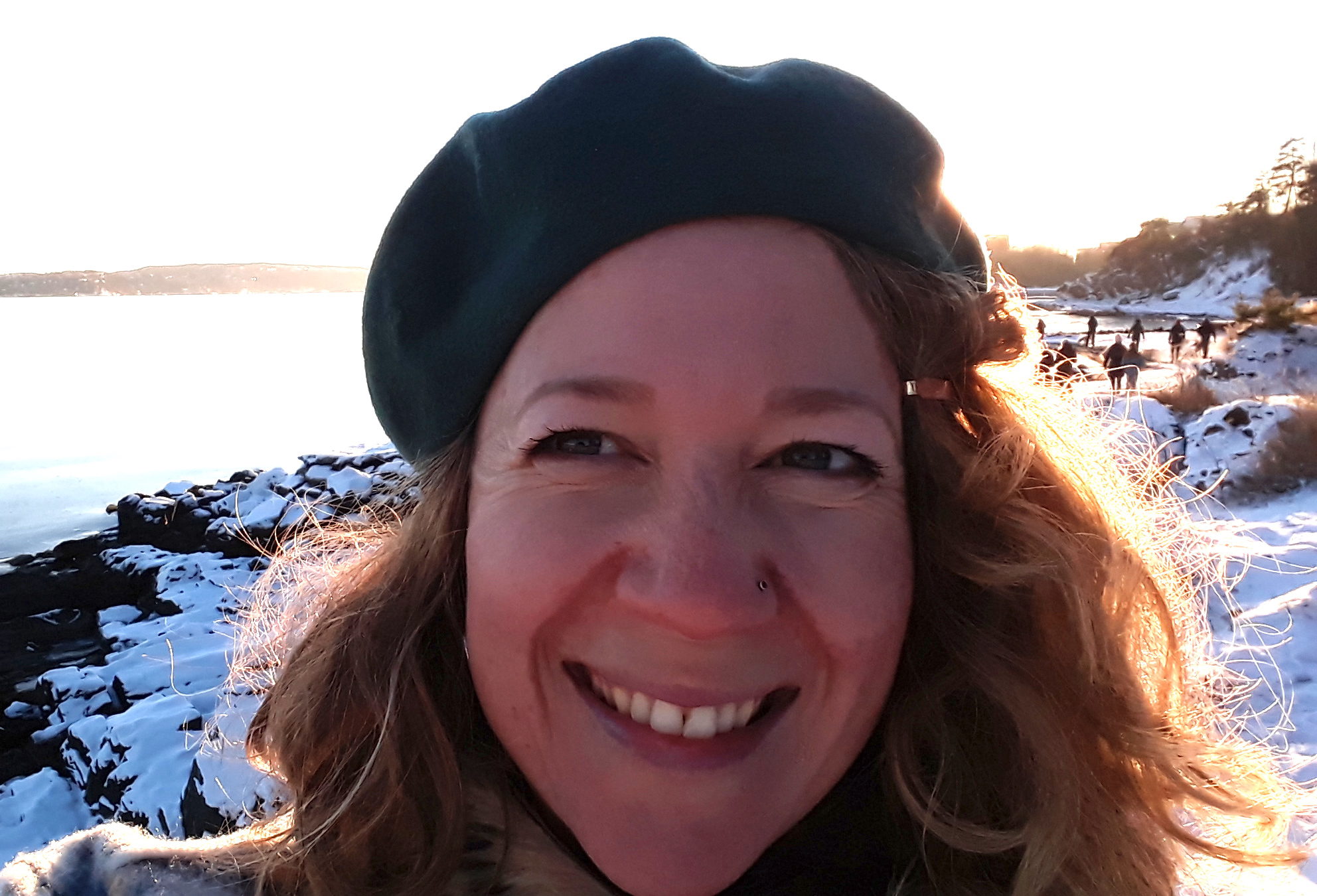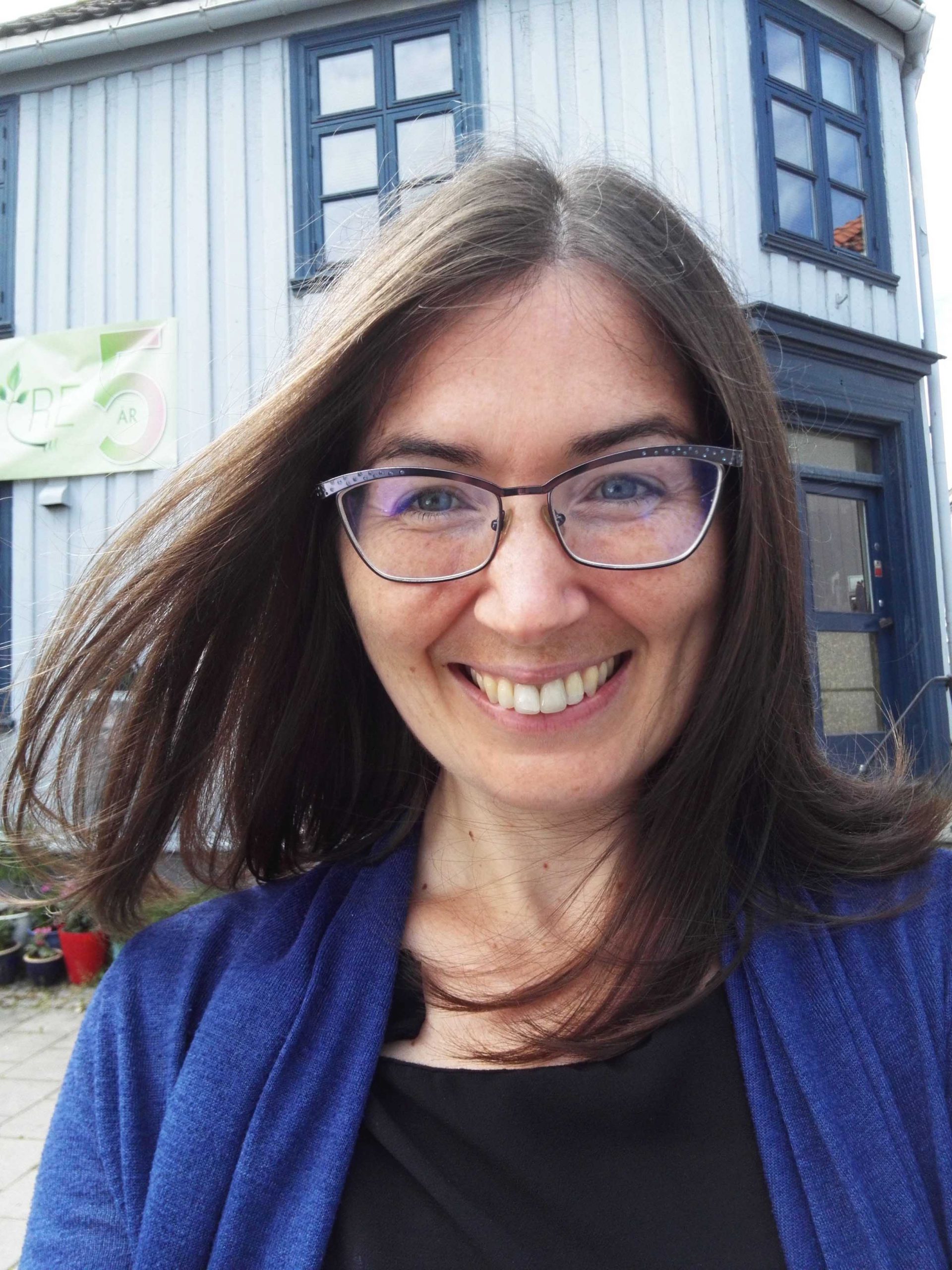Date: 28.02.2023
Time: 18:00 – 19:00
Price: 125 kr (ordinary); 65 kr (student). Tickets.
Written by Zane Cerpina and Stahl Stenslie, published by the MIT Press in 2022.
The event is hosted by NOBAs lead researcher, art historian and philosopher Nora S. Vaage
The book is supported by TEKS – Trondheim Electronic Arts Centre
As a part of Green Week (Grønn Uke) at the Norwegian University of Life Sciences, Vitenparken and the Norwegian BioArt Arena – NOBA are hosting a book launch of the Anthropocene Cookbook written by Zane Cerpina and Stahl Stensile. The conversation will be held by NOBAs lead researcher, art historian and philosopher Dr. Nora S. Vaage.
About the book
The Anthropocene Cookbook takes our planetary state of emergency as an opportunity to seize the moment to imagine constructive change and new ideas. How can we survive in an age of constant environmental crises? How can we thrive? The answers feature the most innovative ideas and speculative concepts about potential future foods conceived within the fields of art, design, science, technology, philosophy, and food studies. The Anthropocene Cookbook rethinks our eating habits and traditions, challenges food taboos, and proposes new recipes for our survival in times of dark ecological disasters.
These more than sixty projects propose new ways to think and make food, offering tools for creative action rather than traditional recipes. They imagine modifying the human body to digest cellulose, turning plastic into food, tasting smog, extracting spices and medicines from sewage, and growing meat in the lab. They investigate fantastic possibilities: What if we made cheese using human breastmilk, enabled human photosynthesis through symbiosis with algae, and brought back extinct species in order to eat them?
In the current and lasting crisis, we need a roadmap to our edible futures. To get there, we urge visionary thinking and original suggestions. After all, it is our future that we are dealing with. In the Anthropocene, this is a pressing issue as our extinction as a species is a possible scenario.
This is no conventional cookbook. There are no ordinary recipes to be found herein either. We cannot expect our future to materialize based on step-by-step instructions. For this reason, The Anthropocene Cookbook is more a tool book for creative actions than a collection of traditional recipes. It is a necessary celebration of the inventive, out-of-the-box thinking that we will need in the Anthropocene.
The projects presented here are selected because they represent new and previously unimagined takes on how to make and depict food, both for consumption and ideation. They propose radical ideas through the practice of cooking. If they do not cook what they preach, they somehow use food as a medium for critical and—more often than not—subversive and thought-provoking thinking. If there is one quality we need to develop for the many unforeseeable crises in the Anthropocene, it is our ability to imagine the inconceivable, the unlikely, even the unwanted. That is the most valued trait in a transitional period when we are about to step into unknown territories. And liminal transition needs liminal thinking.
As we stand on the threshold of a new Age of Man, we are in need of new ethics and new aesthetics that are fit for this transitory and liminal time. The proposals and projects in this book both border on a new world and urge our thinking through art. They are therefore objects of liminal aesthetics: the aesthetics produced and experienced in the transitory phase as we move through ambiguous and uncertain times. While this book is unlikely to fill your stomach with tasty foods, many of the concepts presented are productive in the sense they function as building blocks for new ideas and values. They question our beliefs, influence the ways we think, stimulate creative inquiries, and widen our territory of action. In that sense, they are also transgressive, taking us out of our comfort zone into unknown domains and potential discoveries. So they serve well as roadmaps to a bumpy future we do not know but whose contours already challenge our capacity to both imagine and create.
Zane Cerpina
Zane Cerpina is a curator and writer working within experimental and digital arts. Her extensive body of work includes curating and producing events that call for critical reflection on the current age of the catastrophes such as The Dangerous Futures Festival, Digital Wild Conference, and Ecophilia Conference. Cerpina has initiated and been part of several archival and research projects such as The Norwegian Media Art Library and is one of the editors for the Book of Electronic Arts Norway.
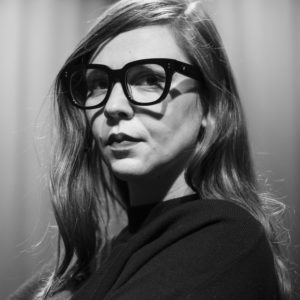
Stahl Stenslie
Stahl Stenslie is a curator and researcher specializing in experimental and emerging aesthetics, and disruptive technologies. He has worked as a professor in experimental arts for two decades. Stenslie is an internationally known artist and lecturer at major international events (ISEA, DEAF, Ars Electronica, SIGGRAPH) and has moderated various symposiums like Ars Electronica (Next Sex), ArcArt, and Oslo Lux. He co-founded The Journal of Somaesthetics and is the editor of EE – Experimental Emerging Art magazine.
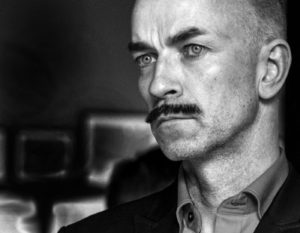
Nora S. Vaage
Dr. Nora S. Vaage is an art historian and philosopher with a PhD in philosophy of science and ethics. From this interdisciplinary perspective she writes and teaches on a number of topics at the intersection between culture, society, and technology. She is particularly interested in questions of values and knowledge views (ethics and epistemology) and has for many years focused on bio- and eco art and biohacking. In addition to her academic work, she has occasionally worked as an art critic and curator.
Nora is Associate Professor in Art and Media Studies at Nord University, Levanger. Up until December 2020 she was Assistant Professor in Philosophy of Art and Culture at Maastricht University. She is Lead Researcher at NOBA, and is the person to contact about research connections, project proposals and ongoing research projects. Nora is Associate Professor in Art and Media Studies at Nord University, Levanger. Up until December 2020 she was Assistant Professor in Philosophy of Art and Culture at Maastricht University. She is Lead Researcher at NOBA, and is the person to contact about research connections, project proposals and ongoing research projects.
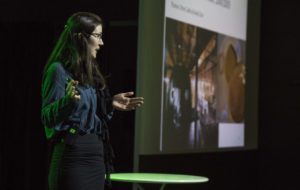
Reviews:
“If you are looking for solutions to the great problems of mankind, you will probably not expect them to be found in a cookbook. But that is exactly what The Anthropocene Cookbook wants: to provide answers to the question of how humans can deal with impending catastrophes such as food shortages and the loss of species.”
– Der Spiegel
>>>
“By turns enlightening and profound, difficult and preposterous, Cerpina and Stenslie’s account is an impassioned call for ‘visionary thinking’ and dismantling food taboos. Climate-concerned cooks with an open mind will find much to chew on in this surprising culinary tour.”
– Publishers Weekly
>>>
“Published by MIT Press, Cerpina and Stenslie’s anthology confronts the idea that the Anthropocene era — the time during which humans have had a substantial impact on the Earth’s environment — entails a radical reassessment of what we eat, and how.”
– Dezeen
>>>
“The book conjures art and unbridled creativity to play out radical scenarios that will inevitably challenge food taboos and question our cultural prejudices, little hypocrisies and vision of tomorrow’s life/survival on planet Earth.”
– We Make Money Not Art
>>>
“…the culinary world has followed art’s lead in the past, and could stand to be inspired by its creativity in the future. At least, that’s the contention of The Anthropocene Cookbook: Recipes and Opportunities for Future Catastrophes, a recently published book of photos and essays that features the Human Hyena and more than 60 other mind-bending ideas on how we as a species might feed ourselves as the temperature rises, forests burn, and water and arable land become increasingly scarce.”
– Sam Lin-Sommer, Atlas Obscura
>>>
“Through thought-provoking projects and commentary, Cerpina and Stenslie encourage us to think and reflect in order to spark our collective imagination. Together, they envision possibilities for our edible future and beyond!”
– Stephanie Tharp, Professor, University of Michigan; coauthor of Discursive Design: Critical, Speculative, and Alternative Things
>>>
“The Anthropocene Cookbook is not your typical recipe book. It is more important than that. It is a cookbook for the imagination, containing recipes that remind us how to imagine, speculate, dream — and see the world otherwise.”
– Julian Bleecker, Founder, Near Future Laboratory; Chief Executive Officer, OMATA
>>>
“Around the table is the right place to think about our future, and adapting to the Anthropocene requires the creativity of the kitchen. This recipe book is a must-have for people willing to experiment with radical ideas through cooking.”
– Matteo Vignoli, Assistant Professor, University of Bologna; Founder, Future Food Institute
